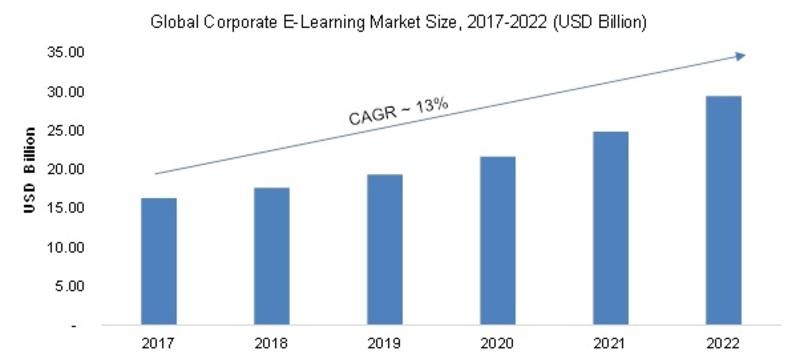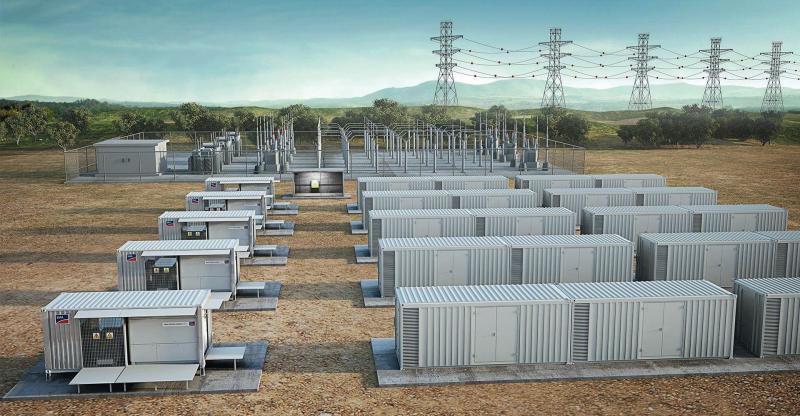Press release
Intelligent Energy Storage Systems Market Anticipated to Surpass US$ 31.25 Billion by 2033 as Demand Soars
𝐈𝐧𝐭𝐫𝐨𝐝𝐮𝐜𝐭𝐢𝐨𝐧:
The global intelligent energy storage systems market is on the cusp of significant transformation, fueled by the growing need for efficient, sustainable, and reliable energy storage solutions. As the world increasingly shifts towards renewable energy sources, the demand for advanced energy storage systems to store excess power generated from wind, solar, and other renewable sources is rising exponentially. According to recent projections, the intelligent energy storage systems market is expected to surpass US$ 31.25 billion by 2033, driven by factors such as technological advancements, favorable government policies, rising demand for electric vehicles, and the growing need for grid stabilization.
𝐈𝐧 𝐚 𝐧𝐮𝐭𝐬𝐡𝐞𝐥𝐥, 𝐭𝐡𝐞 𝐏𝐞𝐫𝐬𝐢𝐬𝐭𝐞𝐧𝐜𝐞 𝐌𝐚𝐫𝐤𝐞𝐭 𝐑𝐞𝐬𝐞𝐚𝐫𝐜𝐡 𝐫𝐞𝐩𝐨𝐫𝐭 𝐢𝐬 𝐚 𝐦𝐮𝐬𝐭-𝐫𝐞𝐚𝐝 𝐟𝐨𝐫 𝐬𝐭𝐚𝐫𝐭-𝐮𝐩𝐬, 𝐢𝐧𝐝𝐮𝐬𝐭𝐫𝐲 𝐩𝐥𝐚𝐲𝐞𝐫𝐬, 𝐢𝐧𝐯𝐞𝐬𝐭𝐨𝐫𝐬, 𝐫𝐞𝐬𝐞𝐚𝐫𝐜𝐡𝐞𝐫𝐬, 𝐜𝐨𝐧𝐬𝐮𝐥𝐭𝐚𝐧𝐭𝐬, 𝐛𝐮𝐬𝐢𝐧𝐞𝐬𝐬 𝐬𝐭𝐫𝐚𝐭𝐞𝐠𝐢𝐬𝐭𝐬, 𝐚𝐧𝐝 𝐚𝐥𝐥 𝐭𝐡𝐨𝐬𝐞 𝐰𝐡𝐨 𝐚𝐫𝐞 𝐥𝐨𝐨𝐤𝐢𝐧𝐠 𝐭𝐨 𝐮𝐧𝐝𝐞𝐫𝐬𝐭𝐚𝐧𝐝 𝐭𝐡𝐢𝐬 𝐢𝐧𝐝𝐮𝐬𝐭𝐫𝐲. 𝐆𝐞𝐭 𝐚 𝐠𝐥𝐚𝐧𝐜𝐞 𝐚𝐭 𝐭𝐡𝐞 𝐒𝐚𝐦𝐩𝐥𝐞 𝐫𝐞𝐩𝐨𝐫𝐭 𝐚𝐭 - https://www.persistencemarketresearch.com/samples/6364
𝐓𝐡𝐞 𝐒𝐮𝐫𝐠𝐞 𝐢𝐧 𝐃𝐞𝐦𝐚𝐧𝐝 𝐟𝐨𝐫 𝐈𝐧𝐭𝐞𝐥𝐥𝐢𝐠𝐞𝐧𝐭 𝐄𝐧𝐞𝐫𝐠𝐲 𝐒𝐭𝐨𝐫𝐚𝐠𝐞 𝐒𝐲𝐬𝐭𝐞𝐦𝐬
At the heart of this market's robust growth is the surge in demand for intelligent energy storage systems, which integrate advanced technology, automation, and data analytics to optimize energy use and storage. These systems are designed to improve efficiency, reduce costs, and support grid stability by enabling real-time monitoring and management of energy storage assets. With the increasing integration of renewable energy sources into national and regional grids, there is a pressing need for storage solutions that can store intermittent renewable energy and make it available when needed.
The rapid adoption of electric vehicles (EVs) is another critical driver contributing to the expansion of the intelligent energy storage systems market. As EVs continue to gain popularity, the demand for high-performance batteries and charging infrastructure is intensifying. Intelligent energy storage solutions offer an effective way to manage the power generated by electric vehicles, thereby enhancing the efficiency of energy consumption while providing a more sustainable option for charging infrastructure.
𝐊𝐞𝐲 𝐃𝐫𝐢𝐯𝐞𝐫𝐬 𝐨𝐟 𝐌𝐚𝐫𝐤𝐞𝐭 𝐆𝐫𝐨𝐰𝐭𝐡
Several key drivers are expected to propel the growth of the intelligent energy storage systems market in the coming years.
1. Technological Advancements:
The rapid evolution of battery technologies is a major factor driving the growth of the intelligent energy storage systems market. Innovations such as lithium-ion batteries, solid-state batteries, and flow batteries have improved energy density, charge/discharge cycles, and safety features. These advancements are making energy storage systems more affordable, efficient, and capable of supporting a wide range of applications. Additionally, the integration of AI and machine learning technologies enables real-time data analytics, allowing operators to optimize energy storage, predict demand fluctuations, and manage energy resources effectively.
2. Government Policies and Incentives:
Governments around the world are increasingly recognizing the importance of energy storage in achieving their renewable energy goals. Various policy initiatives, subsidies, and incentives are being introduced to support the development and deployment of intelligent energy storage systems. For instance, in countries like the U.S., Germany, and China, tax credits, rebates, and other financial incentives are being offered to reduce the upfront costs of energy storage installations. These government interventions are helping accelerate the adoption of intelligent energy storage solutions, particularly in residential, commercial, and industrial sectors.
3. Environmental Sustainability:
The growing focus on sustainability and reducing carbon footprints is another significant driver behind the demand for intelligent energy storage systems. As the world moves towards a low-carbon economy, renewable energy sources such as solar and wind are becoming more prominent. However, the intermittent nature of these energy sources presents a challenge. Intelligent energy storage systems provide a viable solution by storing excess energy generated during peak periods and releasing it during times of low generation, ensuring a continuous and stable supply of clean energy.
4. Energy Independence and Grid Stability:
The need for energy independence and grid stability is driving demand for intelligent energy storage systems. Traditional energy grids are often prone to fluctuations and outages, particularly in remote or rural areas. Intelligent energy storage systems, by enabling decentralized energy production and storage, offer a solution to mitigate grid instability. Furthermore, these systems can support microgrids and enable localized energy distribution, reducing reliance on central power plants and improving the resilience of the power grid.
𝐌𝐚𝐫𝐤𝐞𝐭 𝐒𝐞𝐠𝐦𝐞𝐧𝐭𝐚𝐭𝐢𝐨𝐧
The intelligent energy storage systems market can be segmented based on technology, end-user application, and region.
By Technology:
Battery Energy Storage Systems (BESS): This is the dominant technology segment, accounting for the largest share of the market. BESS are widely used in both residential and industrial applications due to their ability to store large amounts of energy and release it as needed.
Thermal Energy Storage: This technology is also gaining traction, especially in industries that require heat management and energy storage for industrial processes.
Flywheel Energy Storage Systems: Flywheel systems, though not as widely used as BESS, are finding applications in specific niches, such as uninterruptible power supply (UPS) systems for data centers and critical infrastructure.
Hydrogen Energy Storage: Hydrogen-based energy storage solutions are emerging as a promising alternative for long-term storage, particularly for large-scale industrial applications.
By End-User Application:
Residential: As more households adopt solar energy, intelligent energy storage systems are being used to store excess solar power and provide backup power during outages.
Commercial: Businesses are increasingly investing in energy storage systems to optimize energy usage, reduce electricity costs, and enhance sustainability efforts.
Industrial: Large-scale industrial operations are using intelligent energy storage systems to stabilize energy costs, reduce peak demand charges, and ensure continuous energy supply.
Utility: Utility companies are adopting advanced energy storage systems to improve grid reliability, support renewable energy integration, and reduce the need for fossil fuel-based power plants.
𝐑𝐞𝐠𝐢𝐨𝐧𝐚𝐥 𝐌𝐚𝐫𝐤𝐞𝐭 𝐈𝐧𝐬𝐢𝐠𝐡𝐭𝐬
Geographically, the intelligent energy storage systems market is expected to experience strong growth across various regions, with North America, Europe, and Asia Pacific leading the charge.
North America is poised to dominate the market, primarily due to the increasing adoption of renewable energy sources, particularly in the U.S. and Canada. The region's growing focus on reducing carbon emissions and promoting clean energy technologies has led to substantial investments in intelligent energy storage systems. Moreover, the presence of several key players in the market, along with government incentives for energy storage solutions, is expected to drive further growth in this region.
Europe is also experiencing significant growth, particularly in countries like Germany, the U.K., and France. The European Union's ambitious climate goals and the ongoing push towards decarbonization have made intelligent energy storage systems a critical component of the region's energy transition. Additionally, the increasing integration of renewable energy into the grid and the development of smart grid infrastructure are expected to further accelerate the market's growth in Europe.
Asia Pacific is expected to be the fastest-growing region in the intelligent energy storage systems market. Countries like China, Japan, and India are rapidly adopting renewable energy technologies and investing in energy storage systems to support their energy grids. The rising demand for electric vehicles and the implementation of smart city initiatives in countries like China are also driving the growth of intelligent energy storage systems in the region.
𝐂𝐡𝐚𝐥𝐥𝐞𝐧𝐠𝐞𝐬 𝐚𝐧𝐝 𝐎𝐩𝐩𝐨𝐫𝐭𝐮𝐧𝐢𝐭𝐢𝐞𝐬
Despite the promising growth trajectory of the intelligent energy storage systems market, several challenges could hinder its expansion. The high initial investment required for the installation of these systems, particularly for large-scale applications, remains a significant barrier for many businesses and consumers. Additionally, concerns regarding the longevity and recycling of batteries, particularly lithium-ion batteries, continue to pose environmental and economic challenges.
However, these challenges also present significant opportunities. The ongoing development of advanced battery technologies, such as solid-state batteries and sodium-ion batteries, holds the potential to address many of the current limitations, including cost, efficiency, and environmental impact. Furthermore, as demand for energy storage continues to grow, there will be ample opportunities for innovation and investment in new energy storage technologies and business models.
𝐅𝐮𝐭𝐮𝐫𝐞 𝐎𝐮𝐭𝐥𝐨𝐨𝐤
The future of the intelligent energy storage systems market looks bright, with advancements in technology, government support, and growing consumer demand all playing pivotal roles in shaping the market's evolution. As the world continues to prioritize sustainability and renewable energy, intelligent energy storage systems will become an integral part of the global energy landscape.
The market is expected to witness increased investments, both from public and private sectors, as well as the development of more cost-effective and efficient energy storage solutions. With technological advancements paving the way for a cleaner, more reliable energy future, the intelligent energy storage systems market is set to surpass US$ 31.25 billion by 2033, marking a new era of energy storage innovation.
𝐂𝐨𝐧𝐜𝐥𝐮𝐬𝐢𝐨𝐧
The intelligent energy storage systems market is poised for substantial growth, driven by technological advancements, increasing demand for renewable energy, and the shift towards more sustainable and reliable energy systems. With favorable government policies and continued innovation, the market is well-positioned to play a pivotal role in the future of global energy management and sustainability.
Persistence Market Research
G04 Golden Mile House, Clayponds Lane
Brentford, London, TW8 0GU UK
USA Phone: +1 646-878-6329
UK Phone: +44 203-837-5656
Email: sales@persistencemarketresearch.com
Web:
https://www.persistencemarketresearch.com
𝐀𝐛𝐨𝐮𝐭 𝐏𝐞𝐫𝐬𝐢𝐬𝐭𝐞𝐧𝐜𝐞 𝐌𝐚𝐫𝐤𝐞𝐭 𝐑𝐞𝐬𝐞𝐚𝐫𝐜𝐡:
At Persistence Market Research, we specialize in creating research studies that serve as strategic tools for driving business growth. Established as a proprietary firm in 2012, we have evolved into a registered company in England and Wales in 2023 under the name Persistence Research & Consultancy Services Ltd. With a solid foundation, we have completed over 3600 custom and syndicate market research projects, and delivered more than 2700 projects for other leading market research companies' clients.
Our approach combines traditional market research methods with modern tools to offer comprehensive research solutions. With a decade of experience, we pride ourselves on deriving actionable insights from data to help businesses stay ahead of the competition. Our client base spans multinational corporations, leading consulting firms, investment funds, and government departments. A significant portion of our sales comes from repeat clients, a testament to the value and trust we've built over the years.
The global intelligent energy storage systems market is on the cusp of significant transformation, fueled by the growing need for efficient, sustainable, and reliable energy storage solutions. As the world increasingly shifts towards renewable energy sources, the demand for advanced energy storage systems to store excess power generated from wind, solar, and other renewable sources is rising exponentially. According to recent projections, the intelligent energy storage systems market is expected to surpass US$ 31.25 billion by 2033, driven by factors such as technological advancements, favorable government policies, rising demand for electric vehicles, and the growing need for grid stabilization.
𝐈𝐧 𝐚 𝐧𝐮𝐭𝐬𝐡𝐞𝐥𝐥, 𝐭𝐡𝐞 𝐏𝐞𝐫𝐬𝐢𝐬𝐭𝐞𝐧𝐜𝐞 𝐌𝐚𝐫𝐤𝐞𝐭 𝐑𝐞𝐬𝐞𝐚𝐫𝐜𝐡 𝐫𝐞𝐩𝐨𝐫𝐭 𝐢𝐬 𝐚 𝐦𝐮𝐬𝐭-𝐫𝐞𝐚𝐝 𝐟𝐨𝐫 𝐬𝐭𝐚𝐫𝐭-𝐮𝐩𝐬, 𝐢𝐧𝐝𝐮𝐬𝐭𝐫𝐲 𝐩𝐥𝐚𝐲𝐞𝐫𝐬, 𝐢𝐧𝐯𝐞𝐬𝐭𝐨𝐫𝐬, 𝐫𝐞𝐬𝐞𝐚𝐫𝐜𝐡𝐞𝐫𝐬, 𝐜𝐨𝐧𝐬𝐮𝐥𝐭𝐚𝐧𝐭𝐬, 𝐛𝐮𝐬𝐢𝐧𝐞𝐬𝐬 𝐬𝐭𝐫𝐚𝐭𝐞𝐠𝐢𝐬𝐭𝐬, 𝐚𝐧𝐝 𝐚𝐥𝐥 𝐭𝐡𝐨𝐬𝐞 𝐰𝐡𝐨 𝐚𝐫𝐞 𝐥𝐨𝐨𝐤𝐢𝐧𝐠 𝐭𝐨 𝐮𝐧𝐝𝐞𝐫𝐬𝐭𝐚𝐧𝐝 𝐭𝐡𝐢𝐬 𝐢𝐧𝐝𝐮𝐬𝐭𝐫𝐲. 𝐆𝐞𝐭 𝐚 𝐠𝐥𝐚𝐧𝐜𝐞 𝐚𝐭 𝐭𝐡𝐞 𝐒𝐚𝐦𝐩𝐥𝐞 𝐫𝐞𝐩𝐨𝐫𝐭 𝐚𝐭 - https://www.persistencemarketresearch.com/samples/6364
𝐓𝐡𝐞 𝐒𝐮𝐫𝐠𝐞 𝐢𝐧 𝐃𝐞𝐦𝐚𝐧𝐝 𝐟𝐨𝐫 𝐈𝐧𝐭𝐞𝐥𝐥𝐢𝐠𝐞𝐧𝐭 𝐄𝐧𝐞𝐫𝐠𝐲 𝐒𝐭𝐨𝐫𝐚𝐠𝐞 𝐒𝐲𝐬𝐭𝐞𝐦𝐬
At the heart of this market's robust growth is the surge in demand for intelligent energy storage systems, which integrate advanced technology, automation, and data analytics to optimize energy use and storage. These systems are designed to improve efficiency, reduce costs, and support grid stability by enabling real-time monitoring and management of energy storage assets. With the increasing integration of renewable energy sources into national and regional grids, there is a pressing need for storage solutions that can store intermittent renewable energy and make it available when needed.
The rapid adoption of electric vehicles (EVs) is another critical driver contributing to the expansion of the intelligent energy storage systems market. As EVs continue to gain popularity, the demand for high-performance batteries and charging infrastructure is intensifying. Intelligent energy storage solutions offer an effective way to manage the power generated by electric vehicles, thereby enhancing the efficiency of energy consumption while providing a more sustainable option for charging infrastructure.
𝐊𝐞𝐲 𝐃𝐫𝐢𝐯𝐞𝐫𝐬 𝐨𝐟 𝐌𝐚𝐫𝐤𝐞𝐭 𝐆𝐫𝐨𝐰𝐭𝐡
Several key drivers are expected to propel the growth of the intelligent energy storage systems market in the coming years.
1. Technological Advancements:
The rapid evolution of battery technologies is a major factor driving the growth of the intelligent energy storage systems market. Innovations such as lithium-ion batteries, solid-state batteries, and flow batteries have improved energy density, charge/discharge cycles, and safety features. These advancements are making energy storage systems more affordable, efficient, and capable of supporting a wide range of applications. Additionally, the integration of AI and machine learning technologies enables real-time data analytics, allowing operators to optimize energy storage, predict demand fluctuations, and manage energy resources effectively.
2. Government Policies and Incentives:
Governments around the world are increasingly recognizing the importance of energy storage in achieving their renewable energy goals. Various policy initiatives, subsidies, and incentives are being introduced to support the development and deployment of intelligent energy storage systems. For instance, in countries like the U.S., Germany, and China, tax credits, rebates, and other financial incentives are being offered to reduce the upfront costs of energy storage installations. These government interventions are helping accelerate the adoption of intelligent energy storage solutions, particularly in residential, commercial, and industrial sectors.
3. Environmental Sustainability:
The growing focus on sustainability and reducing carbon footprints is another significant driver behind the demand for intelligent energy storage systems. As the world moves towards a low-carbon economy, renewable energy sources such as solar and wind are becoming more prominent. However, the intermittent nature of these energy sources presents a challenge. Intelligent energy storage systems provide a viable solution by storing excess energy generated during peak periods and releasing it during times of low generation, ensuring a continuous and stable supply of clean energy.
4. Energy Independence and Grid Stability:
The need for energy independence and grid stability is driving demand for intelligent energy storage systems. Traditional energy grids are often prone to fluctuations and outages, particularly in remote or rural areas. Intelligent energy storage systems, by enabling decentralized energy production and storage, offer a solution to mitigate grid instability. Furthermore, these systems can support microgrids and enable localized energy distribution, reducing reliance on central power plants and improving the resilience of the power grid.
𝐌𝐚𝐫𝐤𝐞𝐭 𝐒𝐞𝐠𝐦𝐞𝐧𝐭𝐚𝐭𝐢𝐨𝐧
The intelligent energy storage systems market can be segmented based on technology, end-user application, and region.
By Technology:
Battery Energy Storage Systems (BESS): This is the dominant technology segment, accounting for the largest share of the market. BESS are widely used in both residential and industrial applications due to their ability to store large amounts of energy and release it as needed.
Thermal Energy Storage: This technology is also gaining traction, especially in industries that require heat management and energy storage for industrial processes.
Flywheel Energy Storage Systems: Flywheel systems, though not as widely used as BESS, are finding applications in specific niches, such as uninterruptible power supply (UPS) systems for data centers and critical infrastructure.
Hydrogen Energy Storage: Hydrogen-based energy storage solutions are emerging as a promising alternative for long-term storage, particularly for large-scale industrial applications.
By End-User Application:
Residential: As more households adopt solar energy, intelligent energy storage systems are being used to store excess solar power and provide backup power during outages.
Commercial: Businesses are increasingly investing in energy storage systems to optimize energy usage, reduce electricity costs, and enhance sustainability efforts.
Industrial: Large-scale industrial operations are using intelligent energy storage systems to stabilize energy costs, reduce peak demand charges, and ensure continuous energy supply.
Utility: Utility companies are adopting advanced energy storage systems to improve grid reliability, support renewable energy integration, and reduce the need for fossil fuel-based power plants.
𝐑𝐞𝐠𝐢𝐨𝐧𝐚𝐥 𝐌𝐚𝐫𝐤𝐞𝐭 𝐈𝐧𝐬𝐢𝐠𝐡𝐭𝐬
Geographically, the intelligent energy storage systems market is expected to experience strong growth across various regions, with North America, Europe, and Asia Pacific leading the charge.
North America is poised to dominate the market, primarily due to the increasing adoption of renewable energy sources, particularly in the U.S. and Canada. The region's growing focus on reducing carbon emissions and promoting clean energy technologies has led to substantial investments in intelligent energy storage systems. Moreover, the presence of several key players in the market, along with government incentives for energy storage solutions, is expected to drive further growth in this region.
Europe is also experiencing significant growth, particularly in countries like Germany, the U.K., and France. The European Union's ambitious climate goals and the ongoing push towards decarbonization have made intelligent energy storage systems a critical component of the region's energy transition. Additionally, the increasing integration of renewable energy into the grid and the development of smart grid infrastructure are expected to further accelerate the market's growth in Europe.
Asia Pacific is expected to be the fastest-growing region in the intelligent energy storage systems market. Countries like China, Japan, and India are rapidly adopting renewable energy technologies and investing in energy storage systems to support their energy grids. The rising demand for electric vehicles and the implementation of smart city initiatives in countries like China are also driving the growth of intelligent energy storage systems in the region.
𝐂𝐡𝐚𝐥𝐥𝐞𝐧𝐠𝐞𝐬 𝐚𝐧𝐝 𝐎𝐩𝐩𝐨𝐫𝐭𝐮𝐧𝐢𝐭𝐢𝐞𝐬
Despite the promising growth trajectory of the intelligent energy storage systems market, several challenges could hinder its expansion. The high initial investment required for the installation of these systems, particularly for large-scale applications, remains a significant barrier for many businesses and consumers. Additionally, concerns regarding the longevity and recycling of batteries, particularly lithium-ion batteries, continue to pose environmental and economic challenges.
However, these challenges also present significant opportunities. The ongoing development of advanced battery technologies, such as solid-state batteries and sodium-ion batteries, holds the potential to address many of the current limitations, including cost, efficiency, and environmental impact. Furthermore, as demand for energy storage continues to grow, there will be ample opportunities for innovation and investment in new energy storage technologies and business models.
𝐅𝐮𝐭𝐮𝐫𝐞 𝐎𝐮𝐭𝐥𝐨𝐨𝐤
The future of the intelligent energy storage systems market looks bright, with advancements in technology, government support, and growing consumer demand all playing pivotal roles in shaping the market's evolution. As the world continues to prioritize sustainability and renewable energy, intelligent energy storage systems will become an integral part of the global energy landscape.
The market is expected to witness increased investments, both from public and private sectors, as well as the development of more cost-effective and efficient energy storage solutions. With technological advancements paving the way for a cleaner, more reliable energy future, the intelligent energy storage systems market is set to surpass US$ 31.25 billion by 2033, marking a new era of energy storage innovation.
𝐂𝐨𝐧𝐜𝐥𝐮𝐬𝐢𝐨𝐧
The intelligent energy storage systems market is poised for substantial growth, driven by technological advancements, increasing demand for renewable energy, and the shift towards more sustainable and reliable energy systems. With favorable government policies and continued innovation, the market is well-positioned to play a pivotal role in the future of global energy management and sustainability.
Persistence Market Research
G04 Golden Mile House, Clayponds Lane
Brentford, London, TW8 0GU UK
USA Phone: +1 646-878-6329
UK Phone: +44 203-837-5656
Email: sales@persistencemarketresearch.com
Web:
https://www.persistencemarketresearch.com
𝐀𝐛𝐨𝐮𝐭 𝐏𝐞𝐫𝐬𝐢𝐬𝐭𝐞𝐧𝐜𝐞 𝐌𝐚𝐫𝐤𝐞𝐭 𝐑𝐞𝐬𝐞𝐚𝐫𝐜𝐡:
At Persistence Market Research, we specialize in creating research studies that serve as strategic tools for driving business growth. Established as a proprietary firm in 2012, we have evolved into a registered company in England and Wales in 2023 under the name Persistence Research & Consultancy Services Ltd. With a solid foundation, we have completed over 3600 custom and syndicate market research projects, and delivered more than 2700 projects for other leading market research companies' clients.
Our approach combines traditional market research methods with modern tools to offer comprehensive research solutions. With a decade of experience, we pride ourselves on deriving actionable insights from data to help businesses stay ahead of the competition. Our client base spans multinational corporations, leading consulting firms, investment funds, and government departments. A significant portion of our sales comes from repeat clients, a testament to the value and trust we've built over the years.
Permanent link to this press release:
Copy
Please set a link in the press area of your homepage
to this press release on woodPRI. woodPRI disclaims liability for any content contained in
this release.
Recommend

/newsMicroencapsulation Market Deep Analysis on Key Players - Dow Corning, Encapsys, Syngenta Crop Protection, Evonik Industries, 3M and Bayer
Market Study Report Adds Global Microencapsulation Market Size, Status and Forecast 2024 added to its database. The report provides key statistics on the current state of the industry and other analytical data to understand the market.
Extensive research is required for choosing the appropriate cor...

/newsGermany Airbag Market Size 2023: Global Share, Industry And Report Analysis By 2030 | Hyundai Mobis Co., Ltd. Key Safety Systems, Inc. Robert Bosch GmbH
Germany airbag market is expected to grow at a CAGR of around 6% during the forecast period. Germany Airbag Market research report refers to gathering and analyzing significant market data serve as best medium for various industry players to launch novel product or service. It is vital for key firms...

/newsSecurities Brokerages And Stock Exchanges Market Outlook 2021: Big Things are Happening
A new intelligence report released by HTF MI with title "Global Securities Brokerages And Stock Exchanges Market Survey & Outlook" is designed covering micro level of analysis by Insurers and key business segments, offerings and sales channels. The Global Securities Brokerages And Stock Exchange...

/newsRenewable Chemicals Market Emerging Trends and Competitive Landscape Forecast to 2028
The renewable chemicals market was valued at US$ 80,566.30 million in 2021 and is projected to reach US$ 1,76,750.76 million by 2028 it is expected to grow at a CAGR of 11.9% from 2021 to 2028. The research report focuses on the current market trends, opportunities, future potential of the market, a...

/newsHow Coronavirus is Impacting Cold Brew Coffee, Global Market Volume Analysis, Size, Share and Key Trends 2020-2026
"Market Latest Research Report 2020:
Los Angles United States, February 2020: The Cold Brew Coffee market has been garnering remarkable momentum in the recent years. The steadily escalating demand due to improving purchasing power is projected to bode well for the global market. QY Research's lates...

/newsCorporate E-Learning Market - Global Industry Size, Share, Key Players Analysis that are Infor, SkillSoft Corporation, Adrenna, CERTPOINT Systems and others with Regional Forecast to 2022
Overview:
E-Learning is used to enhance the learning procedures for newer job requirements and to make employees sound about the internal and external changes in the market and respective organizations. This method has created considerable differences in the ways of training and developing employee...
